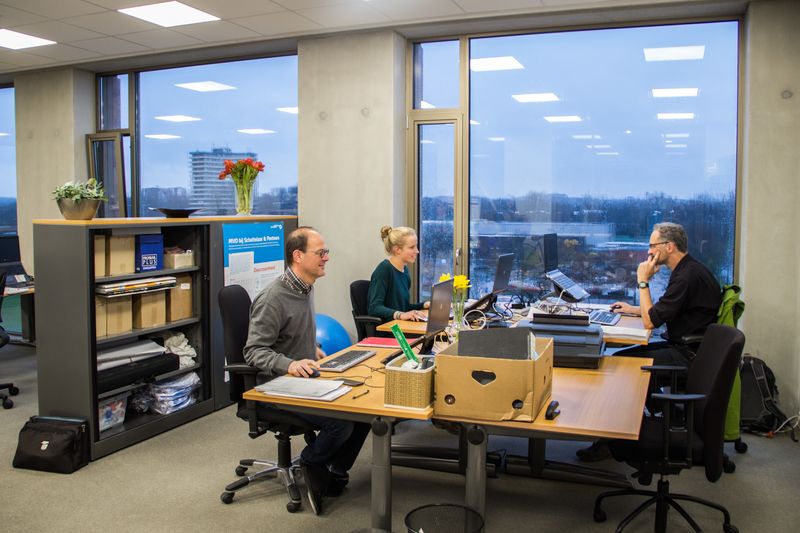As yet, the WUR-council will not ratify the executive board’s strategic housing plan. The decision has been pushed back by six weeks.
The plan covers working from home and shared workspaces on the campus. The WUR Council wants guarantees that employees will not be forced to work from home or to seek a workspace far from their office somewhere on the campus.
To meet the needs of the growing number of employees, WUR requires an additional 10,000 square metres in office space. The executive board does not want to construct additional office buildings but rather use the available spaces more efficiently. The current offices have an average occupancy of some 40%. By sharing desks and as a result of the fact that many employees wish to work from home one or two days a week, the available offices are enough to cushion the increase in the labour force. However, the offices must be converted to meet the housing demands. The executive board wants the sciences groups to draw up their design plans, thus ensuring the wishes of specific groups are included.
Sharing workspaces
The WUR Council want to apply conditions to these decentralised remodelling plans. Jelle Behagel, WUR Council chair: ‘The housing plan states that working from home is an option, not an obligation. The current approach, however, is based on the assumption that staff will share workspaces. This pressurises people into working from home. Moreover, not everyone can work at home on the same days, remote working must be spread. The housing plan may thus affect children’s daycare schedule and parents’ child care days. This is undesirable.’
Decentralised
The executive board argues that the only way to solve such issues is through a bottom-up approach, in consultation with the employees. However, the WUR Council says this means the voice of the employees must be heard at a decentralised level. Therefore, the council wishes to advise the department participation councils on the housing plans. The executive board objects, because this means the foundations of the housing plan will be repeatedly questioned.
The board and the participation council will meet this week in an effort to reach an agreement. Behagel: ‘Our current position is that we will ratify the housing plan only if it is better attuned to the wishes of the employees and students, and if the local councils are sufficiently included in the process.’

 Photo: WUR
Photo: WUR ![[Seriously?] The Gulf of WUR](https://www.resource-online.nl/app/uploads/2025/02/WEB_DeNeus.png)

